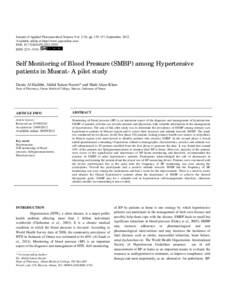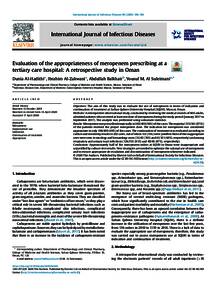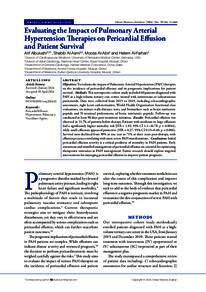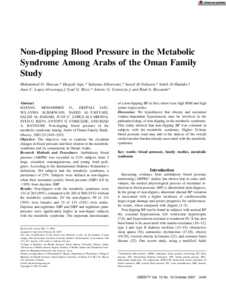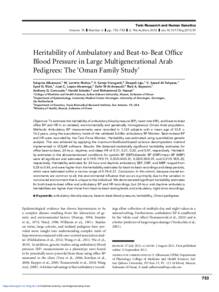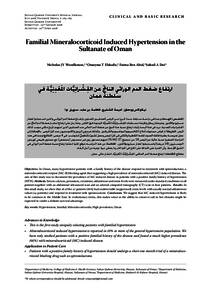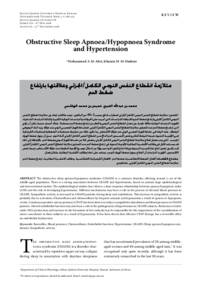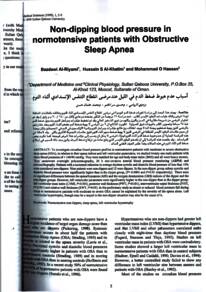Document
Self monitoring of blood pressure (SMBP) among hypertensive patients in Muscat : a pilot study.
Identifier
DOI: 10.7324/JAPS.2012.2930
Contributors
Nazmi, Abdul Salam., Author
Khan, Shah Alam., Author
Publisher
Oman Medical College.
Gregorian
2012-09
Language
English
Subject
English abstract
Monitoring of blood pressure (BP) is an important aspect of the diagnosis and management of hypertension. SMBP of patients at home can provide patients and physicians with valuable information in the management of hypertension. The aim of this pilot study was to determine the prevalence of SMBP among primary care hypertensive patients in Muscat region and to assess their practices and attitude towards SMBP.The study was conducted in two phases. In the first phase 126 patients visiting primary health care centers or polyclinics in Muscat region were interviewed to identify patients who practice SMBP. In the second phase a closed ended questionnaire containing 10 questions related to demographic characteristics, practice and attitude was self administered to 50 patients enrolled from the first phase to generate the data. It was found that around 40% of the patients use Sphygmomanometer to monitor their BP at home. However, majority of the patients were aware of the significance and importance of BP home monitoring and therefore, recommended the practice of SMBP to other hypertensive patients. Participants acknowledged the role of pharmacist in educating and training the patient about the proper use of BP measuring device. Patients were convinced with the device performance but at the same time the frequency of BP monitoring was poor among the participants. Overall the participants had a positive attitude towards SMBP but the frequency of BP monitoring was poor among the participants and had a room for the improvement. There is a need to aware and educate the Omani hypertensive patients about the importance of SMBP to achieve the desired therapeutic goals. SMBP may be a valuable tool in hypertension self-management, therefore, clinicians should consider recommending it more widely.
Member of
ISSN
2231-3354
Resource URL
Category
Journal articles

